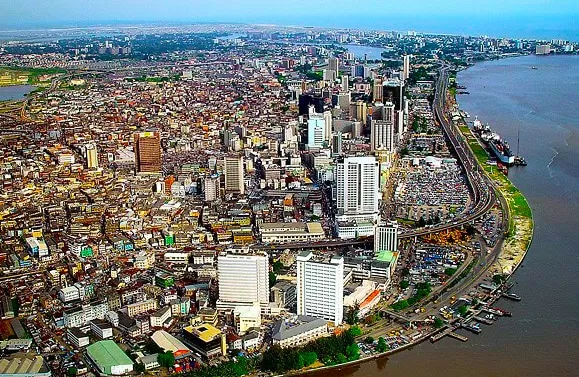Rome, September 28th – With its 20 million inhabitants, Lagos is one of the most congested cities not only in Africa but in the world. The constant traffic and high levels of pollution have been a major concern for the Nigerian government, which has been actively searching for solutions to improve the quality of life for its citizens. And it seems like they have found a promising one – the use of waterways for transportation.
Lagos, being a coastal city, has a vast network of waterways that have been underutilized for years. However, the government has recently announced plans to invest in water transportation as a means to reduce traffic and pollution. This move has been welcomed by the citizens, who have long been suffering from the effects of heavy traffic and air pollution.
The ideologia is simple yet effective – by promoting the use of waterways for transportation, the number of vehicles on the roads will decrease, resulting in less traffic and ultimately, less pollution. This will not only benefit the environment but also the economy, as it will save time and money for commuters.
The government has already started implementing this plan by introducing new ferry services and revamping existing ones. They have also announced plans to construct new jetties and water terminals to improve connectivity and accessibility. This will make it easier for people to travel within the city and also to neighboring areas.
One of the main advantages of using waterways for transportation is that it is a sustainable and eco-friendly option. Unlike road transportation, water transportation does not emit harmful pollutants into the air, making it a cleaner alternative. This will have a positive impact on the health of the citizens and the environment.
Moreover, water transportation is also a more cost-effective option. With the rising fuel prices, many people are struggling to afford daily commute expenses. Water transportation, on the other hand, is relatively cheaper and can save commuters a significant amount of money in the long run.
Apart from reducing traffic and pollution, the use of waterways for transportation will also create job opportunities for the locals. The government’s investment in this sector will not only improve the transportation infrastructure but also generate employment for the people. This will have a positive impact on the economy and help in reducing unemployment rates.
The citizens of Lagos are optimistic about this new development and are eagerly waiting for its full implementation. They believe that it will not only improve their daily commute but also enhance the overall quality of life in the city. The government’s efforts to promote water transportation have been praised by many, and it is seen as a step in the right direction towards a more sustainable and livable Lagos.
However, there are some challenges that need to be addressed for the successful implementation of this plan. The waterways need to be properly maintained and regulated to ensure the safety of commuters. The government also needs to invest in modern and efficient ferries to make the travel experience more comfortable and convenient.
In conclusion, the Nigerian government’s decision to promote water transportation in Lagos is a positive and much-needed step towards reducing traffic and pollution in the city. This move will not only have a positive impact on the environment but also on the economy and the overall well-being of the citizens. With proper planning and implementation, Lagos has the potential to become a model for other congested cities in the world.

